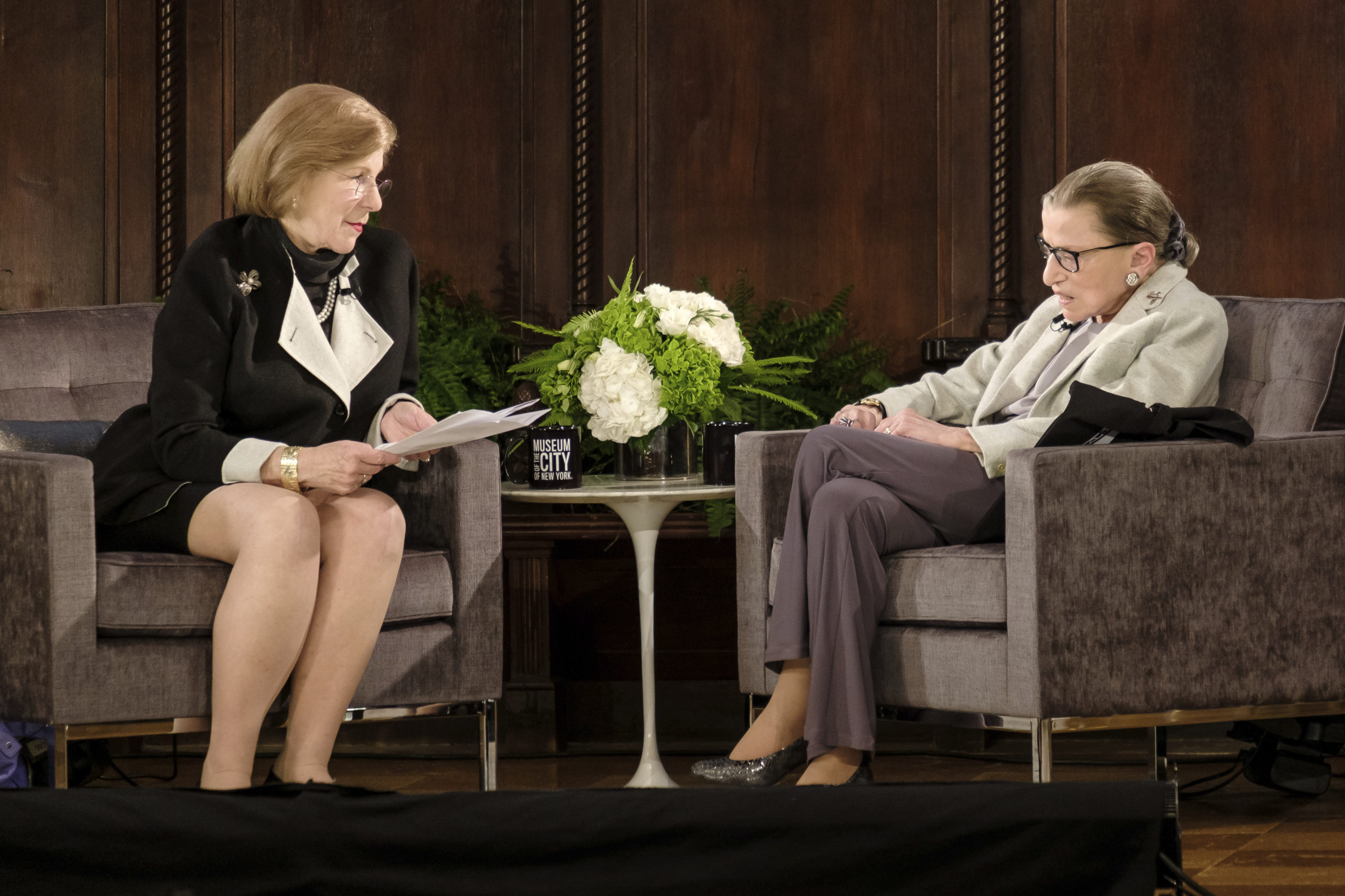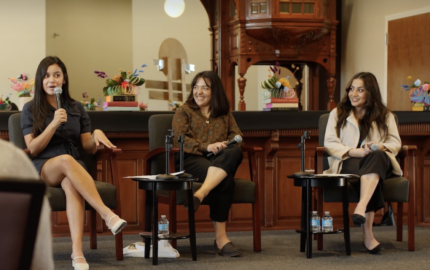Whatever happened to values voters?
Were they wiped off the face of Earth like dinosaurs? Hitched a ride on unidentified interstellar object Oumuamua, which Harvard astrophysicist Avi Loeb thinks might be evidence of alien intelligence, and are now on the other side of our rapidly expanding universe? Chased Bigfoot into the woods or old Nessie into mysterious waters?
Maybe “values voters” never existed. Or we should admit that all voters are values voters, an acknowledgment that would render the term useless.
Or maybe the media’s insistence upon using the term “values voters” to apply to only a slice of the electorate is evidence of the futility of trying to practice a form of “objectivity” that satisfies everyone, especially those who don’t apply similar standards to themselves?
Same can be said of the recently released Nina Totenberg memoir about her friendship with Supreme Court Justice Ruth Bader Ginsburg, whom she also covered as a reporter for NPR.
I strongly suspect every journalist who uses “values voter” in straight-news or opinion pieces believes they are being objective, and that Totenberg also believed the same about her reporting on her friend Ginsburg. Recognizing that helped me relax about a dilemma I’ve been grappling with, even though I’ve long rejected “objectivity” as a journalistic goal.
That’s only partially true. Since I was a young journalist, I was conditioned to think white journalists were objective by default and Black journalists were unobjective until proven otherwise, especially on issues such as race and criminal justice. It’s taken decades to overcome that conditioning, and that journey is still unfolding.
For months, I’ve been interviewing a family, the Taylors in South Carolina, for a series of deeply reported columns I plan to publish this year. In 2016 in Myrtle Beach, South Carolina, where I live and worked as a reporter for the local paper, the media publicly identified the Black teenager Timothy Taylor as a prime suspect in a high-profile missing person case, even though he had never been charged with a crime. A white man is now charged in the case. After that man was arrested, media and law enforcement mostly moved along without fully acknowledging the damage they had done to the Taylors.
I’ve written about the Taylors before, detailing how media and law enforcement nearly destroyed this family by being too cavalier about how we report on people who had been accused of ugly things but not been charged. That was before I began sitting down with the Taylors at their home and learning in painstaking detail what their lives were like for the past 12 years (that’s when Tim Sr. was briefly charged in a separate crime, but an airtight alibi that included video footage showed he was nowhere near the incident) — and also how eerily similar their family is to my own.
The matriarch, Joan Taylor, grew up in the same church, same small community, sang in the same choir with my wife, Tracy, something I didn’t know for much of the 12 years this case was confounding media and law enforcement. The Taylor family, like mine, has had multiple run-ins with law enforcement. That family, like mine, is Black and has had to navigate the racial stereotypes and pressures that come with being Black in the Deep South. For those and many other reasons, I have a natural affinity and empathy for the Taylors.
I want them to receive justice even though I don’t know quite what that is. I want the public to finally hear their side of the story — in full — but am terrified that it won’t be enough to overcome 12 years of false accusations about kidnapping and raping and murdering a young white woman, even though someone else is awaiting trial for those crimes. I’ve worried every day, every time I sit down with them, that I might be too close to the issue, be blinded by my empathy or tempted to cut corners when it comes to journalistic ethical concerns. In other words, I fear I cannot be objective, even though I know the term is vague and unevenly applied.
That’s why I’ve been hyper-transparent with everyone I’ve spoken to about this and will be to the audience when the series is published. I’ve told potential editors and media partners about my personal connections with the Taylors. I’ve told the Taylors that despite those connections, for the purposes of this project, I am a professional journalist first. I’ve made it clear I’ll do my best to tell their story well but can’t control how it will be received and must ask questions and explore angles they might not like or might disagree with.
Though it’s still difficult for me to traverse my conflicting emotions, thinking about “values voters” and what NPR’s Totenberg did has made it just a little easier, because they’ve put a bright light on the lie that is “objectivity.”
The Herschel Walker Senate campaign has laid bare how ridiculous the label “values voters” has long been. The voters who made it possible for Walker to possibly win a Senate seat next month are the same voters the media once referred to as “values voters,” because those voters kept saying they were guided by their principles, ethics, and even their desire to be Christ-like when choosing which candidates to support. They are the voters without whom Donald Trump could not have become president or remain the most likely 2024 GOP standard bearer.
That’s despite Walker’s alleged payment for the abortion of a girlfriend — something those “values voters” have often proclaimed is murder — and Walker’s and Trump’s extramarital affairs and extreme, persistent lying.
Those voters are largely white conservative evangelical Christians. Why was what they were preaching described as “values” and what their political opponents were saying was not? Why didn’t journalists refer to voters who prioritized Medicaid expansion through the Affordable Care Act as “values voters,” given that access to better health care has improved the quality of life for millions, saved thousands of people on an annual basis, and contributed to a big drop in the abortion rate during the Obama presidency?
“Objectively” speaking, it makes no sense, and it never did. The media helped white conservative evangelical Christians push that narrative anyway. Why? I suspect it was just easier than scrutinizing the truth of those values and probably because of our desire to avoid being labeled “liberal media” or biased against conservatives or people of faith.
What other “objective” narratives and standards have we bought into that need to be re-examined?
Maybe the kind that convinced TV news execs to deny President Joe Biden primetime air as he talked about documented threats to our democracy in front of Philadelphia’s Independence Hall? Instead, they ran re-runs. Maybe the kind that convinced them to run uninterrupted the first speech by newly crowned King Charles III?
Conservatives declared Biden’s speech an attack on Republicans in general, which news execs apparently didn’t have the stomach to tell them just wasn’t true. Not airing the speech of a newly crowned king would have made the networks look “woke,” given the heated discussions about race and colonization that erupted after Queen Elizabeth II’s death.
Totenberg’s example put my internal struggles in perspective. I have been and will be more transparent about my empathy and connection to the Taylors than she was about the obvious conflicts that arose because of her long-time friendship with the late Supreme Court justice. She seemed to think it perfectly reasonable to not fully disclose the depths of her relationship with Ginsburg, even as she was reporting on some of the most important decisions in the Court’s modern history, including Ginsburg’s decision to not retire during the Obama administration and allow a Democrat to appoint her replacement, a decision that at least indirectly led to the overturning of Roe v. Wade. And NPR allowed her to do so.
And I’ve been foolishly fretting that I might not be able to do a decent job telling an important, complex story because the people involved look and live too much like my own family. I know what it feels like to be a member of a Black family in the Deep South dealing with accusations as ugly as murder. I know in my bones the burden of shame that comes with that reality, a shame every family on the wrong side of the criminal justice system shares, but a shame that manifests itself in unique ways for Black families where the Taylors and I live. The combination of my personal experiences and fidelity to professional journalistic standards makes me an ideal person to tell their story.
While I will continue struggling to navigate these muddy waters, I won’t make the mistake of beating myself up about it again. I don’t need to strive for “objectivity.” I simply need to be transparent, accurate, fair, and ethical.



